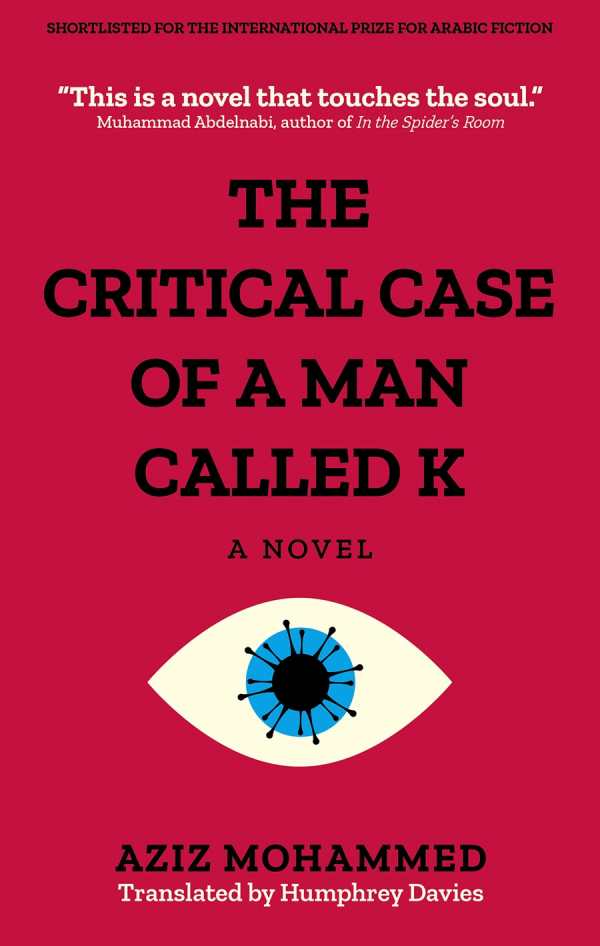The Critical Case of a Man Called K
The inner world of a sick, antagonistic young man is the compelling focus of Aziz Mohammed’s novel, The Critical Case of a Man Called K.
Narrated in direct, plain language, the book delves into the unsettled mind of a young man who is reading Kafka’s diaries and attempting to write his own. As he writes, he realizes that, not only is his life void of excitement, but his abilities as a writer are meager in comparison to those of the authors whose classic novels he reads.
The narrator is from an unnamed Persian Gulf country, working in front of a computer screen all day as an IT person at a petrochemical company. He is often late to his job, and works from a large business tower, where a group of morning smokers huddles together outside each day, and where an “Old Man” (so called in homage to Hemingway’s character) occupies the computer next to him. He’s prone to allusions, a habit that his mother denigrates. His relationship with his mother is fraught; they live together, and she can’t understand why he can’t be more like his successful, married sister or engaged brother.
The man’s observations about himself, and about those around him, are clear and snarky, though they do include some ill-conceived slurs toward LGBTQ+ people. His forty weekly entries become the book’s chapters. They push forward at full steam, if with an overwhelming sense of disappointment that doesn’t fully make sense until the revelation of his medical battle. Through this somber experience, the man’s processing and reflective nature take center stage. He becomes more compassionate with others, and with himself.
Though his experiences are suffocating, the narrator maintains a clear narrative flow thanks to well-timed, humorous observations; his story progresses toward deeper understanding of the human condition.
Reviewed by
Monica Carter
Disclosure: This article is not an endorsement, but a review. The publisher of this book provided free copies of the book to have their book reviewed by a professional reviewer. No fee was paid by the publisher for this review. Foreword Reviews only recommends books that we love. Foreword Magazine, Inc. is disclosing this in accordance with the Federal Trade Commission’s 16 CFR, Part 255.

